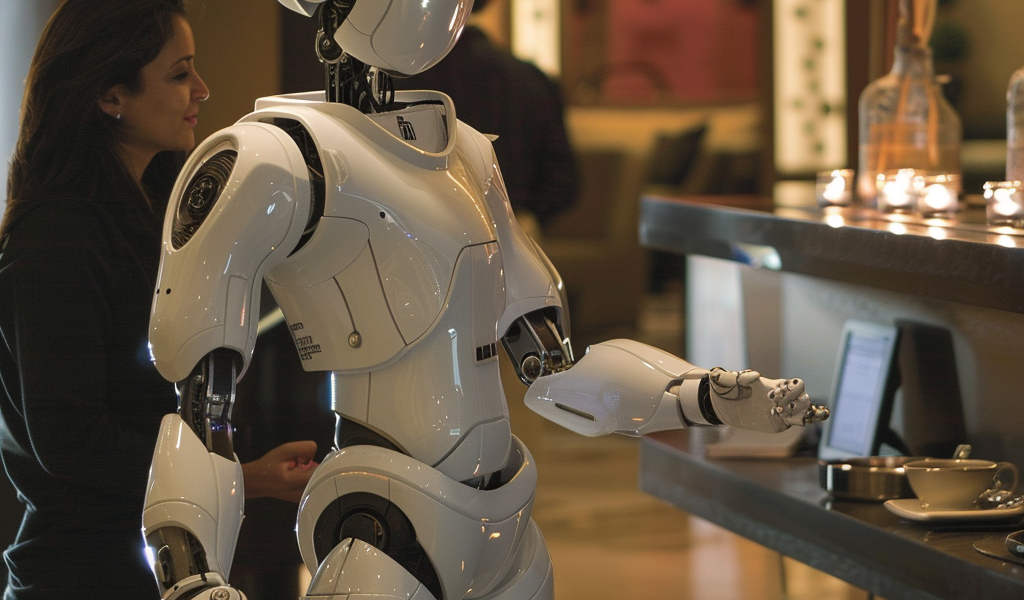Clone Robotics Unveils Groundbreaking Humanoid Robot: The Clone Alpha
In a significant leap forward for humanoid robotics, the Polish startup Clone has announced the early release of their latest innovation, the Clone Alpha. This advanced humanoid robot is specifically designed for service and hospitality roles, marking a new era in the integration of robotics into everyday life.
The Clone Alpha will be produced in a limited run of just 279 units, each equipped with a unique set of features aimed at enhancing user interaction and functionality. Among its standout capabilities is the ‘Telekinesis’ training platform, which allows users to teach the robot new skills, thus expanding its utility in various environments.
Pre-orders for the Clone Alpha are set to open in 2025, with the company inviting enthusiasts and potential users to reserve one of the first models. Clone’s official announcement emphasized the exclusivity of this limited edition, stating, “Reserve one of the first 279 Clones ever made, in its Alpha Edition.” This limited availability is expected to generate significant interest among tech aficionados and early adopters.
While many tech companies are focusing on large-scale industrial applications for humanoid robots, Clone is taking a different approach. Their robots are designed not just for efficiency in warehouses but also as companions in personal and professional settings. This shift in focus highlights the versatility of humanoid robots and their potential to enhance human experiences.
Clone’s previous innovations include the Torso, a bimanual android powered by artificial muscles, and the Clone Hand, which have both contributed to the company’s reputation for cutting-edge robotics. The introduction of the Clone Alpha is seen as a significant milestone, showcasing the company’s commitment to advancing the field of robotics.
Advanced Robotics Technology
The Clone Alpha features a sophisticated integration of artificial muscle, skeletal, nervous, and vascular systems, enabling it to mimic human-like functionality with remarkable precision. At the core of this technology is the ‘Myofiber’ system, developed in 2021, which actuates natural animal skeletons by attaching musculotendon units to bones. This innovative approach prevents tendon failures and allows the robot to respond with muscle contractions in less than 50 milliseconds, delivering over 30% contraction strength with just 1 kilogram of force per 3 grams of muscle fiber.
The skeletal structure of the Clone Alpha closely resembles that of a human, consisting of 206 bones with fully articulated joints, artificial ligaments, and connective tissues. The design incorporates a 1:1 placement of ligaments and tendons, resulting in a highly flexible and responsive framework. Notably, the robot’s shoulder boasts an impressive 20 degrees of freedom (DoF), while the spine adds 6 DoF per vertebra. The hand, wrist, and elbow collectively provide an additional 26 DoF, culminating in a total of 164 DoF in the upper torso alone. This is a significant advancement compared to Tesla’s Optimus robot, which offers only 22 DoF in hand movement capabilities.
Durability is another key aspect of the Clone Alpha’s design. Constructed from robust polymers, the robot is both cost-effective and resilient, making it suitable for various applications in both domestic and commercial settings.
The nervous system of the Clone Alpha plays a crucial role in its operation, allowing for instantaneous muscle control through proprioceptive and visual feedback mechanisms. The robot is equipped with four depth cameras, 70 inertial sensors, and 320 pressure sensors, all of which work in concert to provide real-time data and enhance the robot’s responsiveness to its environment.
As the robotics industry continues to evolve, the introduction of the Clone Alpha represents a significant step forward in the development of humanoid robots. With its advanced features and capabilities, this robot is poised to redefine the role of robotics in service and hospitality, paving the way for a future where humanoid companions become an integral part of daily life.





